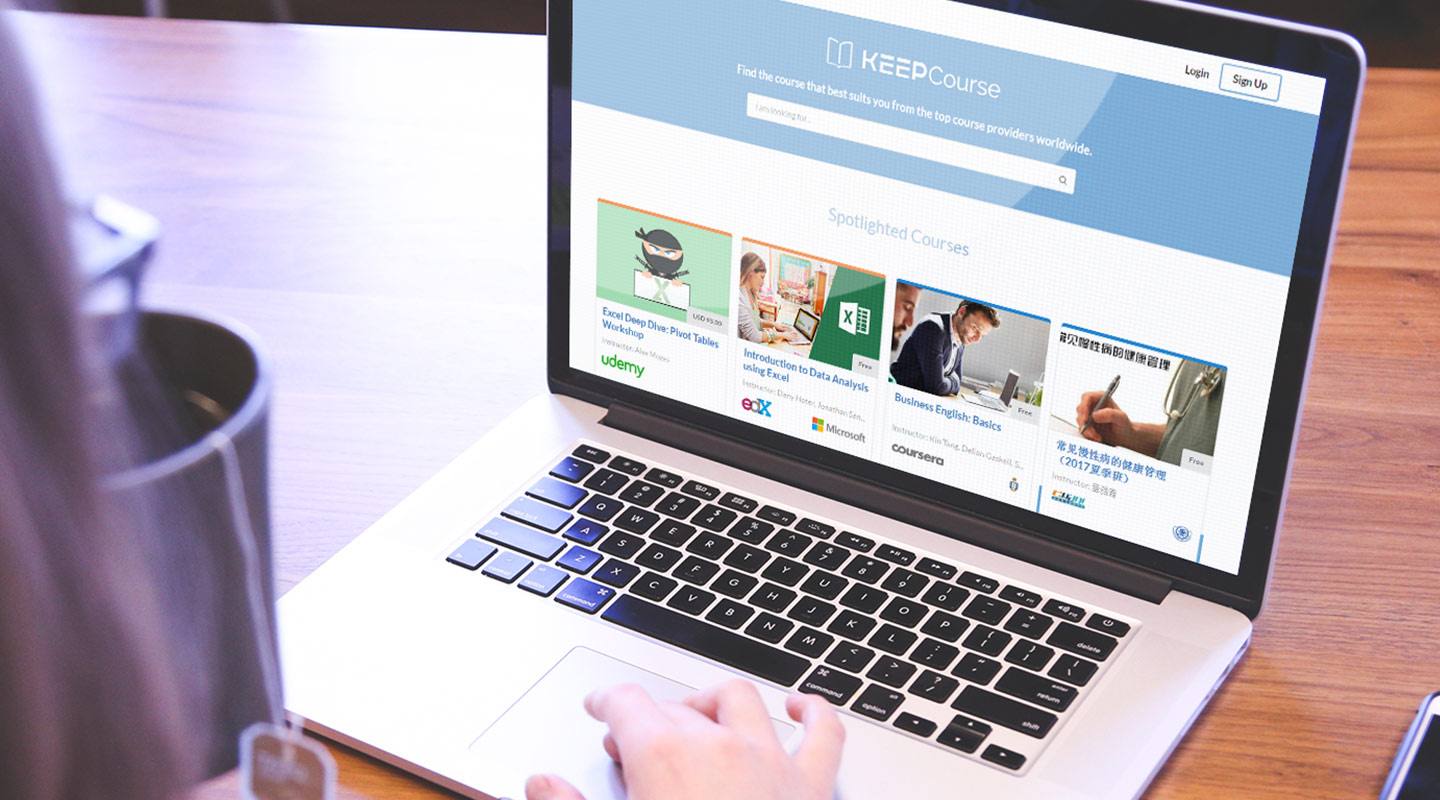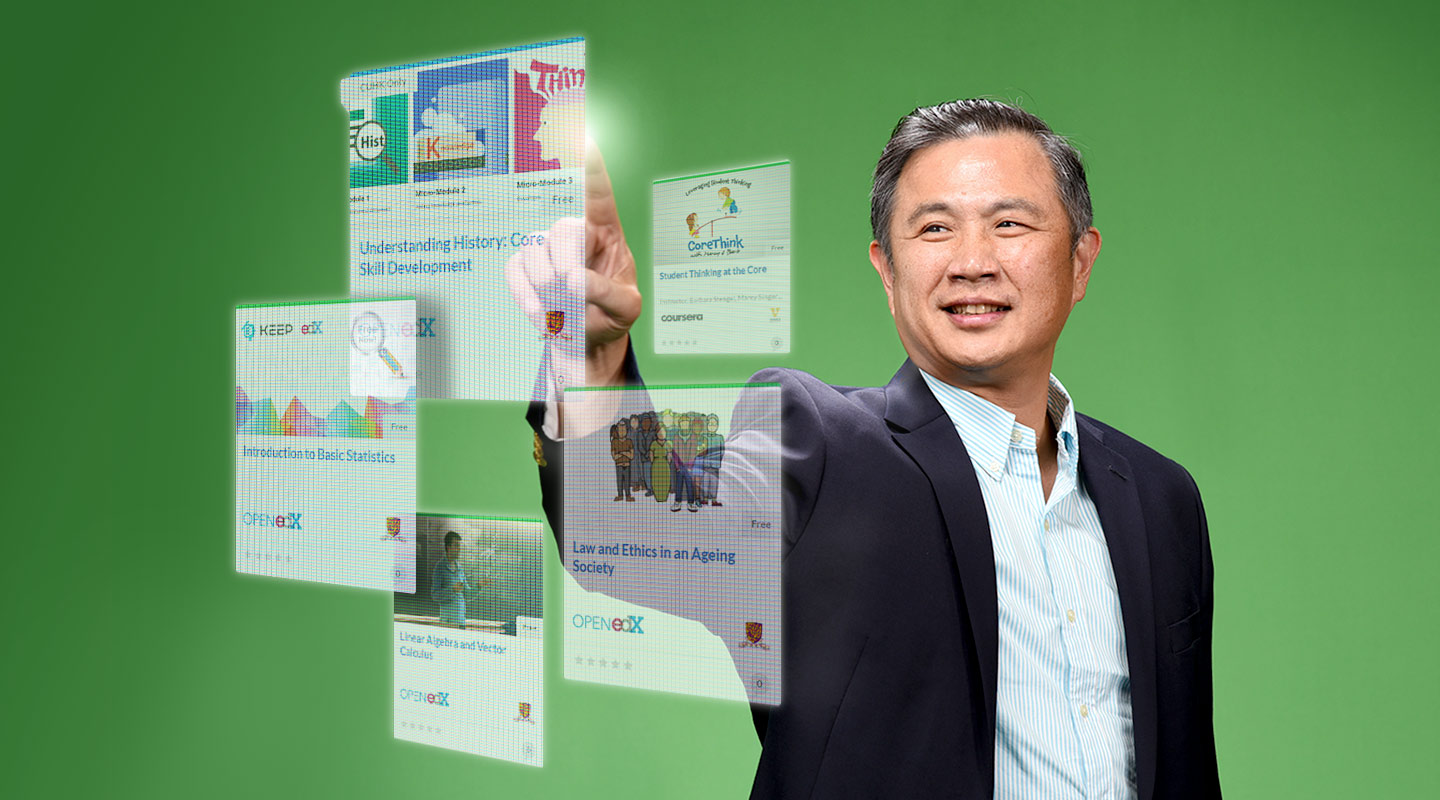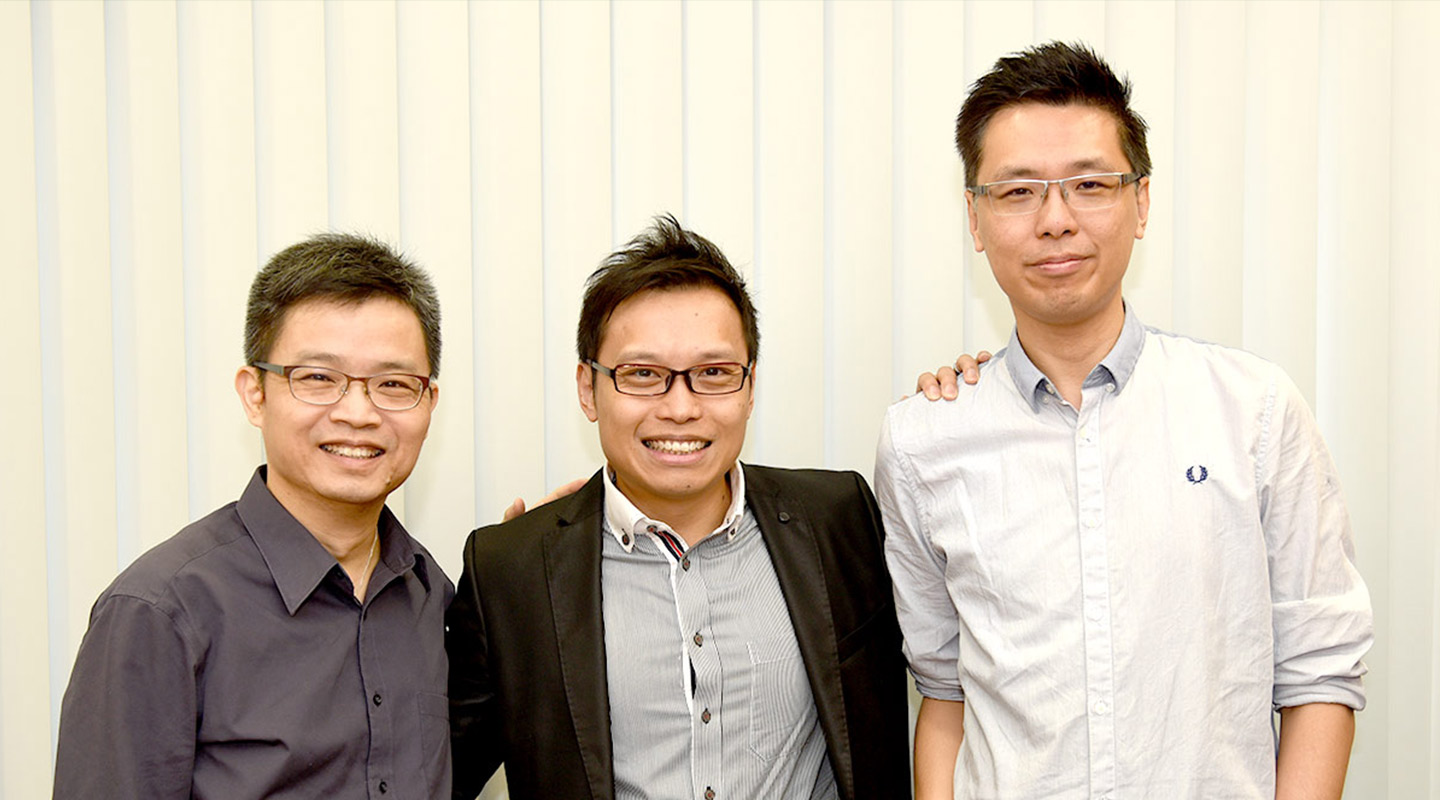Dear readers, With the launch of e-newsletter CUHK in Focus, CUHKUPDates has retired and this site will no longer be updated. To stay abreast of the University’s latest news, please go to https://focus.cuhk.edu.hk. Thank you.
KEEP Learning in the Clouds
CUHK marshals education into the cyber age

Education has been revitalized by the ubiquitous use of the Internet and technological advancement. To keep abreast of the global learning trend, the University has initiated a cloud-based e-learning platform KEEP (Knowledge and Education Exchange Platform) with its partner institutions. The one-stop platform aims at furnishing its subscribers with open access to quality educational resources, courseware and personalized learning content and data analytics.
Prof. Irwin King, Associate Dean (Education) of CUHK’s Faculty of Engineering and project investigator of KEEP, said, ‘The trend of providing quality education nowadays is to disseminate e-learning content to better engage learners. As an engineer, I wish to leverage technology for the betterment of teaching and learning.’
Teachers from Hong Kong institutions have created over 90 courses on the KEEP platform, while many more are in progress. Through collaborations with several global MOOC providers such as Coursera and cross-institutional projects like the BOLT (Blended & Online Learning & Teaching), KEEP has aggregated around 4,300 courses for global learners to access.
Personalized Education
The widespread introduction of learning management systems (LMS) such as Blackboard Learn and Moodle has accumulated a vast amount of students’ learning and interaction data. On KEEP Moodle and KEEP edX, learners’ behaviours from video-watching, completion of quizzes and assignments to forum discussions can be tracked for purposes of understanding and optimizing teaching and learning.
‘KEEP provides a finer-grained learning analytics. Teachers can identify when students are more active in the forum responding to posts and answering questions. We use a formula to calculate how active students are. With their online behaviours plotted on a graph, teachers can easily observe student engagement at a glance,’ Professor King explained.
The intelligent software can spot if a student is continually making similar mistakes, for example, which gives teachers capability to address the needs of individuals in a personalized way. On the other hand, learners can create their personalized learning path utilizing the course recommender based on their learning preferences and goals. ‘Learners taking MOOCs on the American War of Independence, for instance, can select the modules on economic consequences instead of the whole historical development.’

Wired to Habits of Net Generation
Large lecture classes in higher education settings pose many challenges to class interaction. KEEPoll is a polling facility that can be deployed for instant feedback, which addresses this issue. Students can scan the QR code with their networked portable devices and answer the questions, both multiple-choice and open-ended. Real-time results will be projected on the screen, giving the teachers an idea of whether students are able to grasp the class content.
Gamification is also central to e-learning. KEEP is co-branding a game engine (PaGamO) which models a world in which a user’s territories will be expanded with points obtained from taking educational quizzes. Teachers can customize the game template by supplying questions from their own disciplines.
Raising the Bar of Macroeconomics Education
Dr. David Chow, Dr. Fred Ku and Dr. Andrew Yuen, senior lecturers from the Department of Decision Sciences and Managerial Economics, had spent a year in creating the ‘Flipped Classroom with Micro-modules for Macroeconomics in Business’ online course before uploading it to KEEP, with the intent to engage students in the fast-paced society exploded with information.
‘Students know that the US will increase the interest rate, but they might not know the whole picture. We envision using multimedia to arouse students’ curiosity in exploring the current affairs and delve into the economic phenomenon,’ said Dr. Ku.
KEEP allows teachers to create online quizzes and review individual students’ performance from the analytics. Dr. Ku said, ‘The majority of students find the modules interesting. They facilitate class dynamics and enhance understanding.’
‘We’re trying different modes, such as lecture recording, animated videos and simulated gaming, to learn which works better for certain content delivery and teaching objectives. For instance, I’m experimenting on an online game in which students could forecast the trend of the US interest rate by capturing real-life data, doing investment and trading,’ said Dr. Yuen.

Professor King concluded, ‘Students’ self-discovery process nowadays is different from 10 to 15 years ago. Inevitably, e-learning implies more work for teachers and learners. But teachers will find it worth pursuing as long as they see better student engagement enabled by shifting parts of lectures online and allowing more time for classroom interaction.’
Adapted from the Chinese University Bulletin No.2, 2016